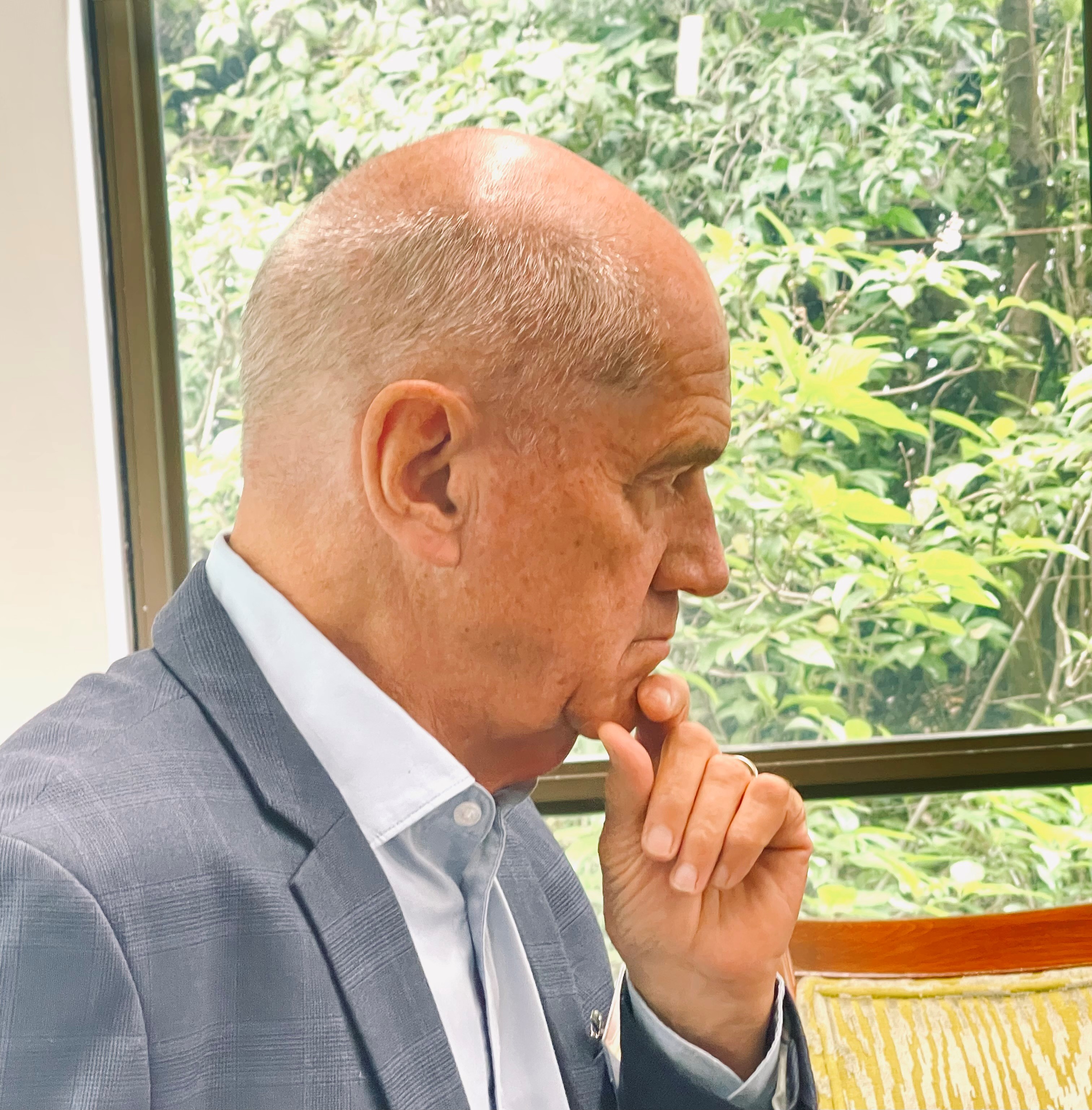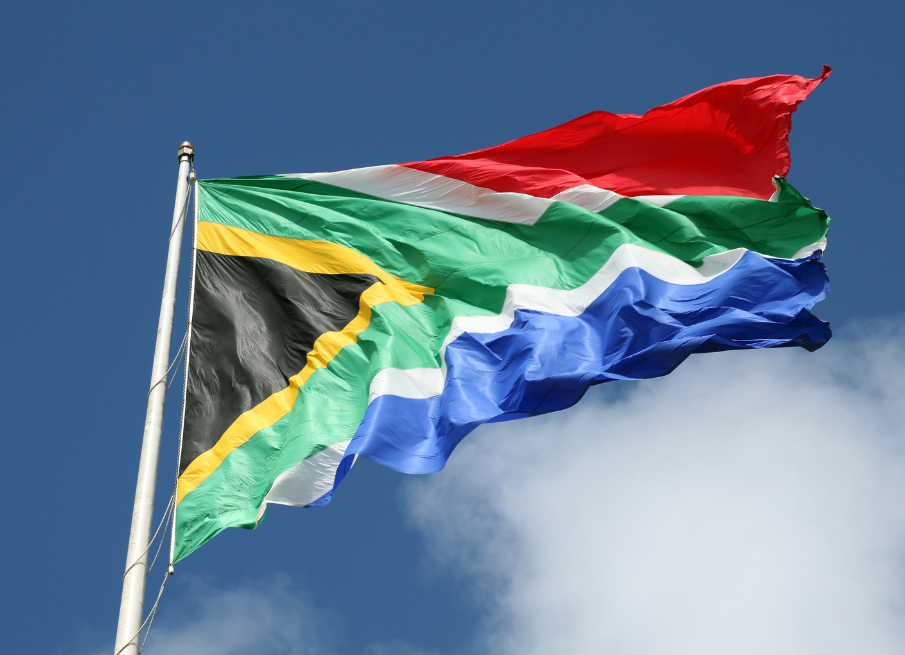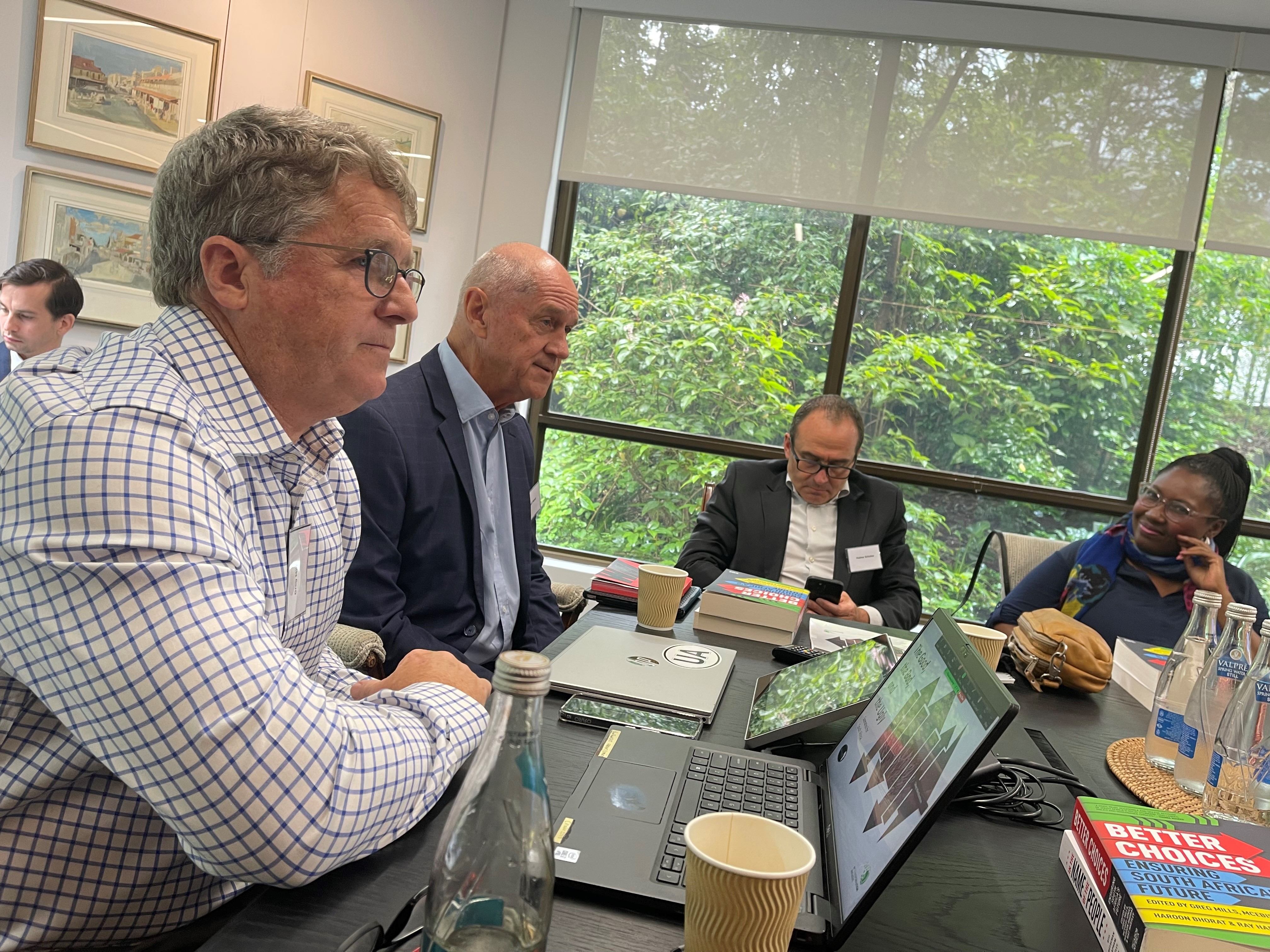News
SA’s Future: The Good, the Bad and the Ugly — and a Fistful of Cents
Key decisions made by political leaders and voters over the next three years will send South Africa on a path of accelerating decline or offer the hope of renewal, but it will be a tough road.

Former Director, The Brenthurst Foundation

Roelf Meyer led negotiations to end apartheid and is now head of the In Transformation Initiative

During the late 1980s, Clem Sunter through his “High Road, Low Road” scenario influenced many to engage on a path of political change. Fortunately, enough South Africans listened and implemented the required change that put South Africa on a high road from apartheid for 15 years.
Sunter and his team outlined the problems and made the options clear.
There is a need, today, for similar prescience and integrity in evaluating South Africa’s options. That “South Africa’s future is in the balance” has become cliched is a reflection of its salience.
The crisis is all around. Our economy is woefully failing to create jobs and the majority of young people have no future in the world of work, bereft of suitable skills and lacking opportunities. Electricity supply is precarious to the extent that we have invented a term — load shedding — to explain its devastating frequency. Our foreign relations are misaligned with the interests of our largest trade and investment partners, and unfocused on Africa.
Leadership turmoil
On top of this, the country’s political leadership is in turmoil. President Cyril Ramaphosa, once believed to be the person to finally lead South Africa out of the darkness of State Capture, corruption and economic failure, has struggled to turn things around. Now he finds himself battling to put the Phala Phala scandal in clear perspective.
All of this has created a climate of extreme uncertainty. Where is the country going? Is the economy doomed to failure as Eskom switches off the lights? What will happen if Ramaphosa is charged in court or defeated at the ANC’s conference, which begins on Friday? What will happen if the 2024 election fails to produce an outright winner? What are the choices available to South Africa’s leaders and its citizens alike?
Coalition
Our fieldwork shows that a coalition government is likely, ushering in a new era of multiparty contestation after three decades of single-party dominance. Indeed, it is the preference of three-quarters of South Africans, with nearly half favouring a coalition without the ANC or between the Democratic Alliance and the ANC.
But will such a coalition be able to reverse the tide of economic stagnation and corruption and turn on the lights? A lot hangs on the coherence of those at the centre, on whether those who favour constitutionalism and the rule of law are able to suspend hostilities and band together to save South Africa.
Based on research into the country’s economic position, the positioning of political forces and the attitudes of South African voters, our Good, Bad, Ugly and Fistful of Cents scenarios attempt to draw fact-based conclusions about the country’s trajectory.
Here, three key events will shape South Africa’s future over the next three years:
- The decisions taken by the ANC’s conference later this week;
- The decisions taken by voters at the 2024 election; and
- The decisions taken by political leaders about coalitions as the ANC slides below 50% of the vote.
In the immediate term, the ANC’s decision to back either Ramaphosa or his rival Zweli Mkhize will set the scene for the 2024 election, an event likely to bring momentous change to SA politics.
Then South Africa will either emerge stronger and recommitted to our constitutional order and economic advancement or we will find ourselves on the path charted by Venezuela, Zimbabwe and others that have abandoned democracy for self-enrichment.
Four possible solutions are imaginable:
- ** The Good**
The “Good” scenario sees those who support constitutionalism, the rule of law and reforms aimed at spurring on economic growth — the silent majority of South Africans — putting aside their differences and building a powerful new reform movement at the centre of South African politics. In this scenario, South Africa is proudly a constitutional democracy and seeks to build relations with others who share the same values on the world stage. This approach could be taken by a coalition of opposition parties with or without the ANC or by ANC reformers if they are able to take full control of the party and act decisively.

- ** The Bad**
In this scenario, the ANC’s Radical Economic Transformation (RET) wing wins the internal battle for power, leading to the ANC’s electoral support dropping far below 50% in the 2024 election. This leads to a coalition between the ANC and EFF, who are aligned with the RET faction on policy. The result will be a rapid and precipitous decline in the country’s finances as nationalisation is implemented and the prosecution of party bosses for corruption ceases. Malign external actors such as Russia entrench themselves within the government and the country abandons its Constitution and democratic values. Investors will flee, sending the currency into freefall and causing hyperinflation, leading to economic collapse.
- ** The Ugly**
The “Ugly” scenario represents a continuation of the status quo. The ANC remains divided and unable to chart a clear path to reform and the rule of law. The energy crisis continues to accelerate, the economy continues on a path of anaemic economic growth and joblessness continues to rise. Investment continues to underperform and the government remains wary of the private sector.
- ** A Fistful of Cents**
The “Fistful of Cents” scenario is a close relative of the “Ugly” scenario, except that cronyism rises as elite extraction accelerates as the state loses its attempt to rein in corruption and graft. The result is greater inequality and joblessness while the elite thrives by extracting rents, legal and illegal, from a sliding economy.
***
The future is not preordained. Citizens are not spectators in the theatre of politics. On the contrary, the right decisions by citizens, party members and political leaders can water the shoots of constitutionalism and democracy and propel the country on to the road of economic reform and growth. While coalition politics looks inevitable, the effect on the ANC is less certain: Whether the party of liberation becomes part of the solution or the principal problem for South Africa’s development is the choice of the ANC and its leadership and, ultimately, the South African electorate.
This article originally appeared on the Daily Maverick
Photo: flowcomm

